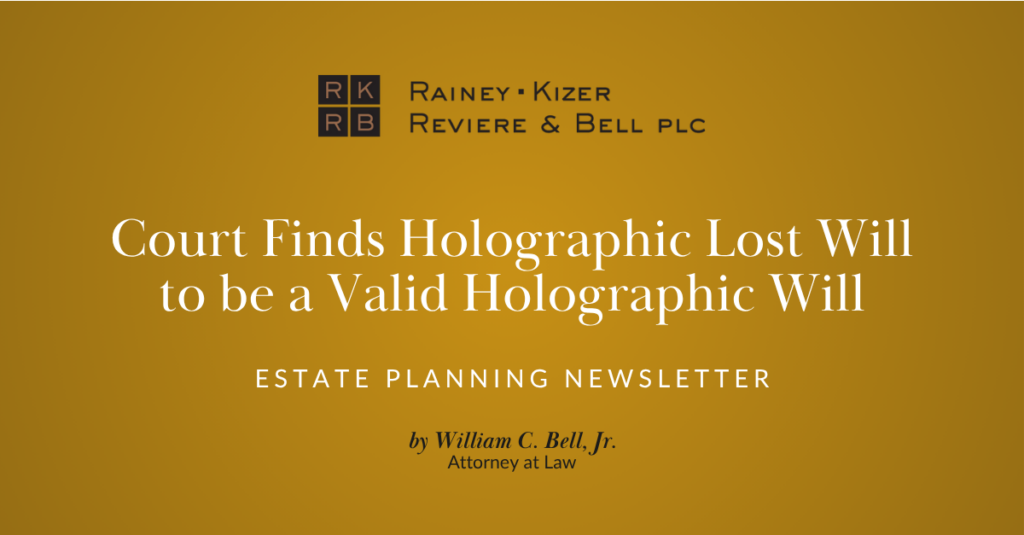Court Finds Holographic Lost Will to be a Valid Holographic Will | Estate Planning Newsletter
In the case of the Payne v. the Estate of Groves, the Court of Appeals dealt with the issue of whether a handwritten document constituted a valid Will of the Decedent and met the requirements of testamentary intent. The Court of Appeals then went on to deal with the issue of whether the Petitioner proved adequately that the Will had been lost, and that a copy of the Will should be admitted to probate.
The Trial Court made detailed findings of fact and conclusions of law that the Will constituted a valid handwritten Will that expressed the testamentary intent of the Decedent, and that the Petitioner had overcome the presumption that the lost Will had been destroyed or canceled.
The Court of Appeals went through a detailed explanation of the law on these matters. In summary, the Court wrote that testamentary intent must be proven in a manner which conforms to applicable rules of evidence and procedure. All the facts and circumstances must be looked to, and it is up to the jury to determine from all of the evidence whether or not the Testator intended the instrument to operate as a Will. The Court put great weight on the testimony of two independent witnesses that testified the Testator told the witnesses that the document was her Will.
On the question of proving a lost Will, the Court found that it was highly probable that the Will was not destroyed but simply lost. The Court pointed out the law on that issue as follows: When a Will cannot be found after the death of the Testator, there is a strong presumption that it was destroyed or revoked by the Testator himself. One who seeks to establish a lost or destroyed Will assumes the burden of overcoming this presumption by adequate proof. The presumption that the Will was destroyed by the Testator may be rebutted.
Both the Trial Court and the Appellate Court found that it was “highly probable” that the Will was simply lost and not destroyed.
MY RECOMMENDATION: Independent witnesses and independent proof as to testamentary intent is strong evidence that is more valuable than the testimony of parties who have an interest in the outcome of the case based on what might be inherited.
For those lawyers reading this newsletter, you should keep in mind the Groves case is a particularly strong case for the outcome that a handwritten holographic Will is valid for meeting testamentary intent of the testator, and that it is strong case for the proposition that a lost Will is simply lost and not destroyed.
Yours very truly,
RAINEY, KIZER, REVIERE & BELL, P.L.C.
William C. Bell, Jr., Attorney at Law

This letter is intended to provide you with ideas for consideration in commercial transactions. It is not intended to give a general solution applicable to all apparently similar individual problems, since slight changes in facts may require variance in legal advice. Please contact legal counsel with specific questions.